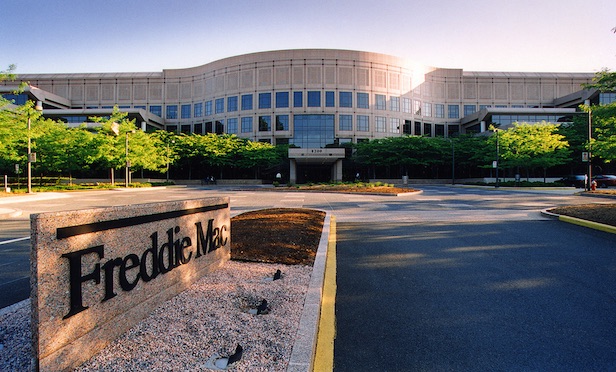
WASHINGTON, DC–In what is a major event for the Low Income Housing Tax Credit markets, Fannie Mae and Freddie Mac will resume their purchasing activity in 2018 having receiving authorization to do so by the Federal Housing Finance Agency.
The FHFA is allowing Freddie Mac to invest in LIHTC equity up to an annual cap of $500 million, subject to certain conditions. Freddie Mac intends to partner with experienced LIHTC syndicators and focus on markets and property types underserved by other investors. Likewise Fannie Mae, although it did not specify what its cap is. “Our volume and where we invest will be dependent on market needs and that changes over time,” Dana Brown, director of Multifamily Customer Engagement and program lead for Fannie Mae LIHTC investment activities, tells GlobeSt.com.
The GSEs pulled out of the LIHTC market during the financial crisis, as did many investors. Indeed the crisis upended the market; the dismal financials at most firms meant that few had a need for tax credits to offset their profits. Ditto the GSEs, which also had other troubles at the time.
The GSEs are re-entering now at a fortuitous — to say nothing of interesting — time for this market. For the last several months the LIHTC market had been in a state of disarray in anticipation of tax reform. Pricing was out of whack as the market heard estimates of potential tax rates ranging from 15% to 25%. Eventually the market settled on pricing based on a tax rate of 25% — until the last few weeks when it became clear that Congress is gunning for a corporate tax rate of 20%.
The lower tax rate means more re-pricing of course. To use a simple explanation, when the corporate tax rate is 35%, a dollar in losses is worth 35 cents. With a 20% corporate tax rate, that dollar is now worth 20 cents, which means an investor will pay less for the credit. Also, obviously, if the tax rate drops to 20% corporations will have a lower tax liability and less need for the credits.
Enter the GSEs, which are not a typical LIHTC investor. That is, they are not a CRA-motivated investor or an economic investor trying to get highest yield. Rather, their goal is to serve as a stabilizing force in the market.
“We think this is an important development for the industry and good timing as well, because the market has suffered a lot of instability,” David Leopold, vice president of Targeted Affordable Sales & Investments at Freddie Mac tells GlobeSt.com.

WASHINGTON, DC–In what is a major event for the Low Income Housing Tax Credit markets,
The FHFA is allowing
The GSEs pulled out of the LIHTC market during the financial crisis, as did many investors. Indeed the crisis upended the market; the dismal financials at most firms meant that few had a need for tax credits to offset their profits. Ditto the GSEs, which also had other troubles at the time.
The GSEs are re-entering now at a fortuitous — to say nothing of interesting — time for this market. For the last several months the LIHTC market had been in a state of disarray in anticipation of tax reform. Pricing was out of whack as the market heard estimates of potential tax rates ranging from 15% to 25%. Eventually the market settled on pricing based on a tax rate of 25% — until the last few weeks when it became clear that Congress is gunning for a corporate tax rate of 20%.
The lower tax rate means more re-pricing of course. To use a simple explanation, when the corporate tax rate is 35%, a dollar in losses is worth 35 cents. With a 20% corporate tax rate, that dollar is now worth 20 cents, which means an investor will pay less for the credit. Also, obviously, if the tax rate drops to 20% corporations will have a lower tax liability and less need for the credits.
Enter the GSEs, which are not a typical LIHTC investor. That is, they are not a CRA-motivated investor or an economic investor trying to get highest yield. Rather, their goal is to serve as a stabilizing force in the market.
“We think this is an important development for the industry and good timing as well, because the market has suffered a lot of instability,” David Leopold, vice president of Targeted Affordable Sales & Investments at
© 2025 ALM Global, LLC, All Rights Reserved. Request academic re-use from www.copyright.com. All other uses, submit a request to [email protected]. For more information visit Asset & Logo Licensing.








